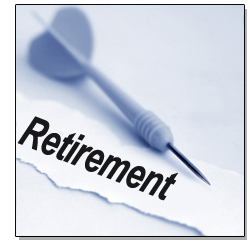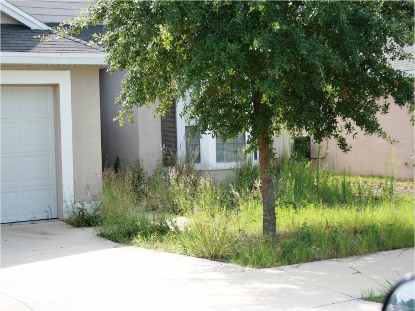When it comes to insurance and your property, your motto should be “better safe than sorry.” From natural disasters to negligence, you never know what could happen to you or your house, and it is better to be prepared for that one incident than to be vulnerable when it does happen.
As a stable homeowner, you should be paying insurance over your house and everything inside of it, but how much do you need, and what is it exactly? Here is a quick run down on the basic insurance policies you should be paying.
Insurance for your Property
As a homeowner, the insurance over your property will be one of the most important in the event of a disaster. There are a couple crucial aspects that are vital for you to remember when purchasing an insurance policy, should your house ever need to be repaired or rebuilt.
First of all, insure your house for the rebuild price, not for the price you bought it. This is a mistake that many homeowners make when first looking at insurance. Remember that the value of your home is different from when you first bought it, and that due to inflation, building materials are also more expensive. It is likely that if you insure your house with the price you bought it at, it will be lower than the actual cost of rebuilding or repairing your house. Have an insurance agent help you calculate the actual price of rebuilding your house, or have a contractor walk through and give you an estimate. Keep in mind that certain features of your house can also make the price fluctuate, such as customized rooms, additional buildings or detail work that is not common in other houses.
Secondly, remember that the insurance of your property may only cover certain incidents. Fires, storms, rain and hail damage, minor pipe breakage, and physical accidents should all be covered. However, floods, tornadoes and earthquakes are not typically included in the standard plan. If you live in an area such as a coastal neighborhood or a mid-western state that is prone to major natural disasters, you should look into additional insurance policies. Some states will provide certain programs, but you must confirm that you will be covered in such a life altering event.
Insurance for Loss of Use
Loss of Use Insurance simply means that you are unable to live in your house anymore, and that you will be compensated to live somewhere else until your house is repaired or rebuilt. This can cover meals, clothing, and other necessities. This may be included in your standard plan, and it may not. If you do not have a back-up plan in the event of a disaster, it may be worth looking into this additional insurance policy.
Insurance for your Personal Belongings
This policy is most likely going to be the one that average homeowners work with the most in their day to day life. Insurance over your personal belongings will cover any the cost of any lost, stolen or destroyed assets. Now, obviously you cannot possibly insure every item in your house; in fact, too many claims can have negative consequences with your insurance company. According to The Wall Street Journal, “If you can fix anything for less than $1,000, don’t file a claim with your insurer.” In simpler terms, only insure the big stuff, such as furniture, televisions, computers, jewelry, and appliances. If you have sentimental belongings, such as family heirlooms or collections, these can also be insured. To make it easier on both you and your insurance company, make a library of your personal items, or at least the ones you want insured. Take a picture or video of the item, and note the day it was purchased, how much it cost, the make and model and any other critical info. It would then be wise to keep the library off property, or better yet, online in a storage cloud. Continue to update it with any new purchases, and discard the old. Then, in the case of a disaster, you can be reassured that you can replace most of your items com.
Insurance for Liabilities
Like all insurance policies, hopefully you will never have to use your liability insurance. This is to protect you and a third party because of your own neglect. For example, if someone is hurt on your property, that person has to option to sue you. If you are sued, your liability insurance should protect you in court as well as pay for any medical expenses. This can come into play if any lawsuit is brought against you or if someone is injured because of you. Typically, your liability insurance will cover $100,000 worth of expenses, but you can always buy more. Again, this insurance should only ever need to be used in extreme cases, but it is still better to have it than be unprepared.
Insurance should be a security net that consoles you in the event of a disaster. You will be grateful that you have it if something does happen, whether catastrophe strikes your house or someone inside it. Research exactly what you want and need with different insurance companies. Most of them offer different things, which could mean you have to buy additional insurance. In any case, it is better to be safe than sorry when it comes to your dwelling and personal belongings.
Related Articles:
- How to remove an HOA board member
- HOA duties: When to delegate, when not to
- 5 tips for responding to HOA spending complaints
- Should you run for your HOAs board?
- How to create a budget for your HOA
- How to recruit good HOA board members
- Run an effective HOA meeting
- How to take good HOA board meeting minutes
- 5 Tips When Nobody Will Run for the HOA Board
- Can the HOA really say No to Political Campaign Signs?
- Resigning from your HOA Board? Don't Make these 5 Mistakes!
- Should Your HOA Outlaw Renters?
- RV Parking Could Cost your HOA $500,000!
- What is Fiduciary Duty?
- How to Amend your HOA Governing Documents - 5 Tips
- How to take Advantage of Rainwater or Rain Conservation
- How to Save Money on your Utility Bills
- West Nile Threat - Prepare Your Neighborhood!
- Want to Sell your House? Fix these 5 things
- What are the responsibilities of Board Members?
 Print
Print Email
Email








